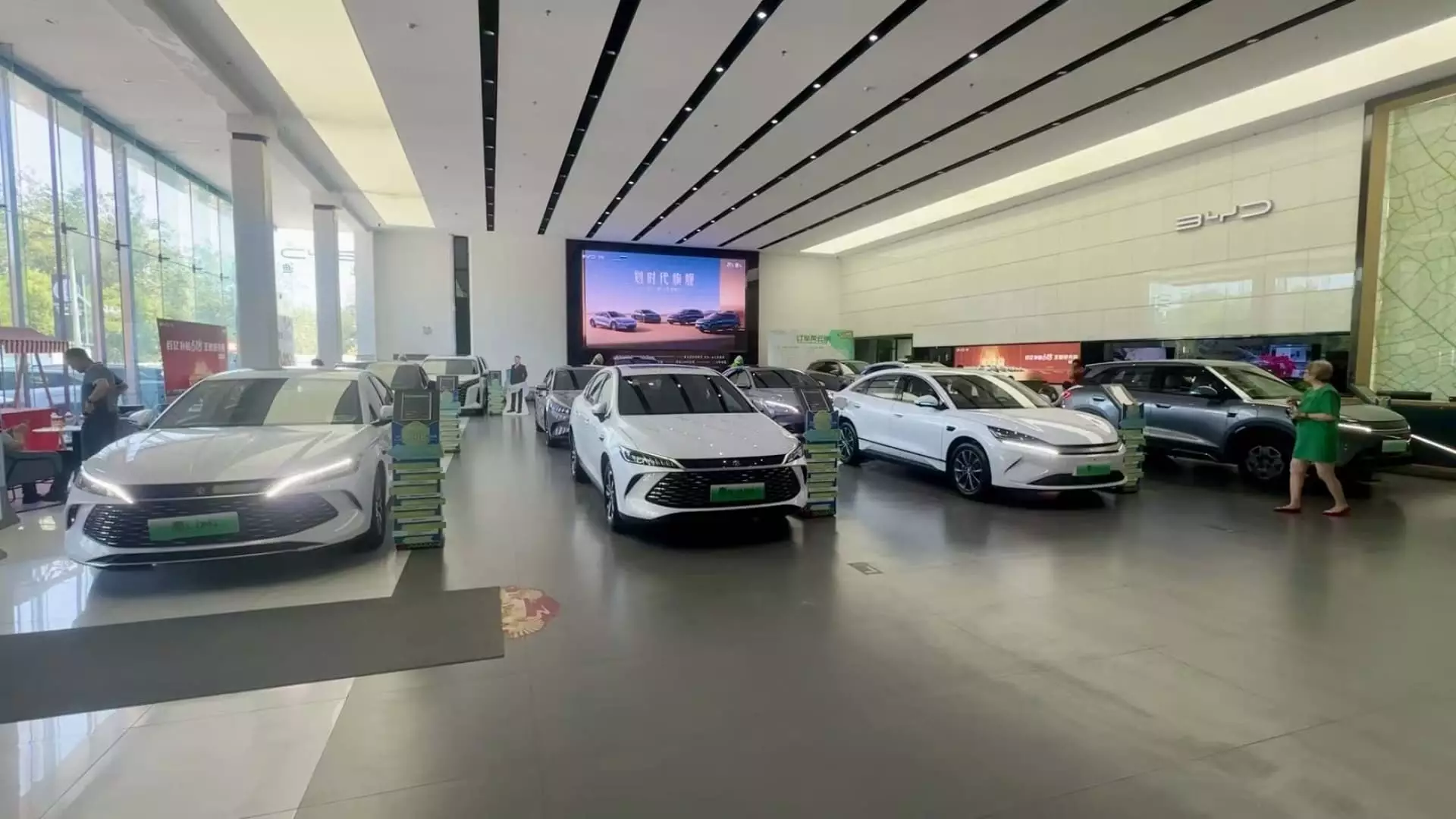In the bustling streets of Beijing, a reckoning is unfolding within the electric vehicle (EV) industry, one that appears alarmingly akin to a self-destructive free-for-all. Conversations with local salesman Ma Hui reveal a grim reality: the ongoing price war among EV manufacturers is not merely a tactic for competitive advantage; it’s a plunge into financial chaos that threatens the very fabric of the industry. With market leader BYD significantly undercutting prices, many are left questioning the sustainability of such aggressive consumer strategies. When a respected figure in the industry proclaims, “All of us were losing money last year,” it becomes painfully clear that the road to recovery may be longer than anticipated.
Internal and External Challenges
The repercussions of this price war extend beyond China’s borders, drawing the ire of international trading partners who consistently accuse the country of flooding markets with low-cost EVs. Ironically, these very accusations are resurfacing domestically, amplifying fears regarding corporate viability and economic stability within China itself. This complex web of criticism culminated in an eye-opening commentary from the People’s Daily, the mouthpiece of the Communist Party. It bluntly stated, “Disorderly ‘price wars’ squeeze profits across the chain, impacting the entire ecosystem and risking income declines for workers.” Such assertions are chilling reminders of the precarious balancing act between innovation and corporate responsibility.
The Role of Industry Giants
BYD, the titan of the electric car market, finds itself under immense scrutiny while simultaneously leading this reckless race. With discounts soaring to an astonishing 34%, consumers may be lured by seemingly unbeatable offers on models such as the newly priced Seagull mini hatchback. However, this approach raises significant ethical questions: is success built on the back of unsustainable practices, and what does it mean for the employees dependent on these companies for their livelihood? In pointed statements from rival executives, such as Great Wall Motor’s Wei Jianjun, the specter of an “Evergrande-like” crisis looms, further emphasizing the fracture lines within an already tenuous industry.
Industry Sentiments and Consumer Perceptions
Compounding the situation is an atmosphere of cynicism. Reports of “zero mileage used cars”—vehicles that are registered yet never driven—serve as a stark indicator of not just desperation, but a creative pivot to bolster sales numbers in a floundering market. The impact rippling through the automotive ecosystem is palpable, raising legitimate concerns for both stakeholders and consumers. Ma Hui’s insights reveal how potential buyers are responding to falling prices with hesitation, adopting a wait-and-see approach. As the economy remains sluggish, many consumers are reluctant to commit to purchases, which could exacerbate the pressure on manufacturers and sellers alike.
A Call for Responsible Competition
In the face of such turmoil, calls for accountability within the industry are surging. The China Association of Automobile Manufacturers has addressed the crisis head-on, urging companies to desist from “dumping” vehicles below production costs. The underlying message is clear: reckless pricing undermines both brand integrity and market stability. BYD’s dismissal of these concerns may come off as bold, but it offers chilling insight into the company’s prioritization of market share over sustainable practices. As an advocate for middle-ground liberalism, it is crucial to question whether aggressive competition should come at such a steep cost to the workforce and the greater economy.
These pressures create an environment that requires introspection and the cultivation of norms that prioritize long-term sustainability over short-term gains. As the world watches, it becomes increasingly apparent that the EV industry in China must pivot from this precarious path if it hopes to thrive in an era defined by innovation and responsible growth. Without a significant change in approach, the current generation of carmakers may find themselves navigating a labyrinth of diminishing returns, leading not merely to individual failures but a wholesale crisis in the national automobile sector.

